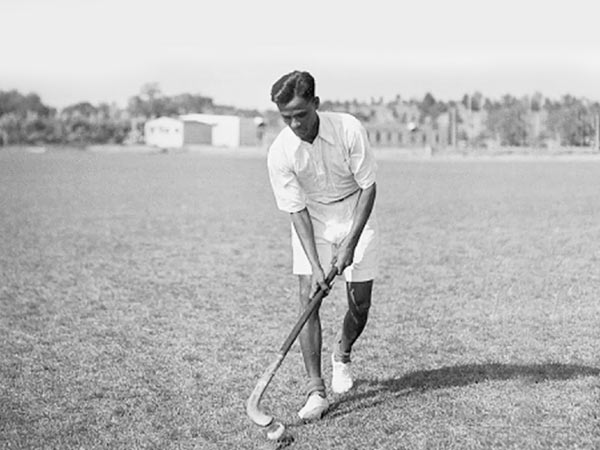
Picture Credit: Twitter
Indian hockey is once again in the news. Credit goes to the country's men and women's teams who both secured semi-final berths at the ongoing Tokyo 2020 Olympics. While the Manpreet Singh-led team bagged the bronze medal, the Rani Rampal-led team finished fourth after taking lead during both the semifinal and the bronze medal match. The sport seems to have come a full circle after the halcyon days of the Indian hockey seemed only a part of folklore and the distant past and had nothing to do with the current.
Netted 14 goals in 1928 Olympic Games
However, if one needs to understand the kind of dominance India had on world hockey in the days gone by, the individual will for sure come across the name "Dhyan Chand." The Indian men's team had won six back-to-back Olympic titles from 1928 to 1956 and while the first three of them in 1928, 1932 and 1936 came under the banner of "British India" there was no doubt that the composition of that winning team was Indian. The 1928 win was a perfect record, enough to make even the worlds' best teams envious. India had won all their five matches, scoring as many as 29 goals and conceding none. It was then that Dhyan Singh, popularly known as Dhyan Chand, as he would often wait for the moon to illuminate the field at night, came into limelight. He ended the tournament as the top-scorer with as many as 14 goals.
Name: Dhyan Singh
Born on: 29 August 1905
Birthplace: Allahabad, United Provinces of Agra and Oudh, British India
Height: Around 5.6 ft
Weight: Approx. 70 kg
Family: Dhyan was the elder brother of another hockey player Roop Singh and the son of Sharadha Singh and Sameshwar Singh. His father served in the British Indian Army and also played hockey for them. Owing to his father's various army transfers, Dhyan Chand couldn't receive proper schooling.
Said no to German citizenship
If this was his introduction at the world stage, he had more in store for those interested as he was absolutely splendid in the next two Olympic Games as well, scoring twelve and eleven goals in Los Angeles and Berlin respectively. His performance bare feet, characterized by wizardly wrists and swift body movements, in the final against host nation Germany left even Adolf Hitler in awe and he famously offered him German citizenship, in a bid to try and make him play for their national team.
And of course, he refused, saying no to a life that promised comfort and riches even as he served the Indian Army with very little recognition from people of his own country. It was perhaps a long time coming that Independent India recognised his achievements and there couldn't have been a better way than to name the nation's highest sporting honour in his memory.
